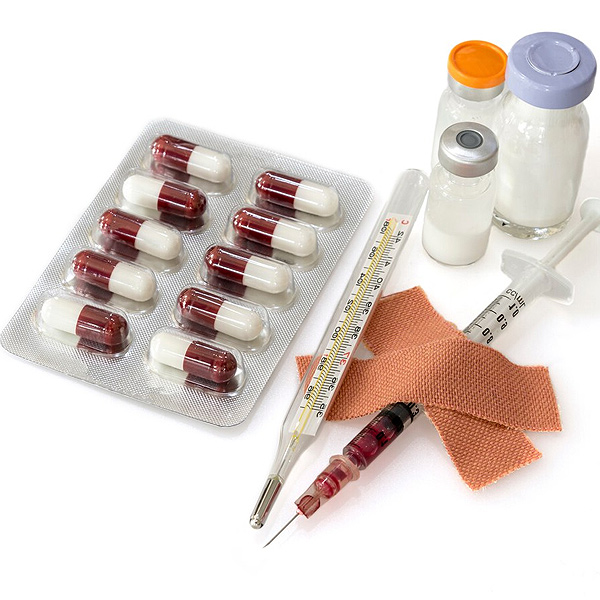Possible causes of a late or missed period
- Posted by: Admin
There are certain times when it’s not uncommon for your period to be irregular or not appear at all, including the first few years after menstruation starts, during pregnancy, and while breastfeeding.
There are a number of reasons why your period may not show up on time — or at all
Ø Pregnancy
Sometimes a late period means exactly what you think: You're pregnant! Because many of the earliest pregnancy symptoms — including cramps, bloating, nausea, spotting, fatigue, breast tenderness and even food aversions — can be similar to what you may experience in the days before menstruation, it can be difficult to tell if your cycle is simply off by a few days or if you're pregnant.
The fastest and easiest way to find out if pregnancy is the cause of your missed period is to take an at-home pregnancy test.
Ø Stress
Stress can trigger a number of unpleasant side effects, like headaches, weight gain, and acne, so it should come as no surprise that it can also affect your menstrual cycle. Stress won’t typically cause problems with your cycle, but occasionally too much stress can lead to fluctuations in hormone levels, which could in turn mess with your body’s timing of ovulation and delay your period.
Ø Illness
Certain illnesses, such as a cold or the flu, can also stress the body and impact ovulation, and, as a result, your period. If illness around the time of ovulation caused you to skip a period, it will likely reappear as normal next cycle.
Ø Weight
Your weight can affect your hypothalamus, a gland in the brain responsible for regulating various processes in the body — including your menstrual cycle.Extreme weight loss, low caloric intake, or being very underweight can stress the hypothalamus. This could inhibit your body from producing the estrogen needed to build the lining of the uterus.
On the other hand, being overweight or gaining a lot of weight in a short amount of time can cause your body to produce too much estrogen. An overload may result in a few months without ovulation or cause the endometrial lining to overgrow and become unstable, resulting in heavy, irregular, or missed periods.
Ø Excessive exercise
Working out is good for you. However, when you overdo it (and possibly also restrict meals to lose weight), your body may not produce enough estrogen to complete the menstrual cycle.
Some women — such as ballet dancers, gymnasts, and professional athletes — are at greater risk for amenorrhea (missing a period for three or more months in a row). But you don't have to be a pro for exercise to mess with your system. Working out excessively without taking in enough calories can also cause disruptions.
Ø Change in schedule
Believe it or not, switching things up — for instance, working the night shift instead of the day or traveling across the country — can throw off your internal body clock, which helps regulate your hormones. Sometimes this results in a missed or late period, but it should return when your body gets used to the change or your schedule goes back to normal.
Ø Breastfeeding
If you're breastfeeding, you may not get your period for some time, since prolactin — the hormone responsible for breast milk production — also suppresses ovulation.
Ø Hormonal imbalance
Polycystic ovary syndrome (PCOS) is a condition where the female sex hormones are out of balance. PCOS can cause cysts on the ovaries and prevent ovulation from occurring regularly. In addition to missed or irregular periods, PCOS can also contribute to excess hair growth, acne, weight gain, and possibly infertility. Your doctor can do a blood test to check your hormone levels if you think PCOS may be the reason for your menstruation problems.
Ø Thyroid disorder
When the thyroid, the gland responsible for your body's metabolism, doesn't function properly, it can cause abnormal menstrual changes. An overactive thyroid (hyperthyroidism) can cause periods to be lighter and less frequent. Additional symptoms include weight loss, rapid heartbeat, increased sweating, and trouble sleeping.
An underactive thyroid (hypothyroidism) may also cause periods to be less frequent but heavier. Hypothyroidism can also cause weight gain, fatigue, dry skin, and hair loss. A blood test can help your doctor determine if you have a thyroid disorder.
Ø Perimenopause
The average age of menopause is 51. Anywhere from two to eight years before that, a woman experiences what's known as perimenopause, a period when the body gradually produces less estrogen. During this time, it's not uncommon to experiences changes in your menstrual cycle — periods may come more or less frequently, be shorter or longer, or be lighter or heavier. But you'll also likely experience hot flashes and night sweats, sleeping difficulties, vaginal dryness, and mood swings. If you're concerned about your symptoms, your doctor can check your hormone levels with a blood test.
Though a missed period can be emotional, try not to jump to conclusions until you find out what's really going on. A visit to your doctor can help pinpoint the cause, and if you're not pregnant, coax your next period along and get things back to normal.









